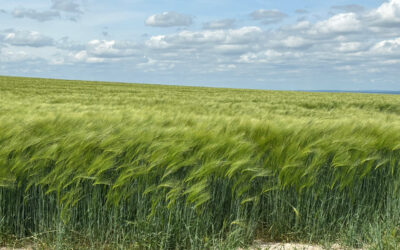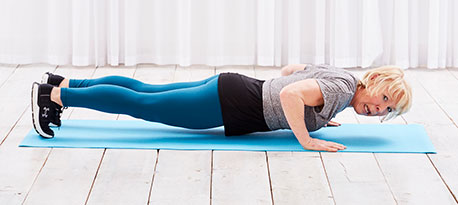This is the first of three blogs on the subject of the menopause. This first blog deals with what we can (and should) do to look after our bones. Right now. Not later. Now.
Firstly some clarification.
The peri-menopause refers to the years (usually the early forties, sometimes late thirties) when the body starts to make less of the hormone oestrogen and starts to make the natural transition towards the menopause. During this time, there may be lots of physical and emotional changes.
The menopause is defined as the final menstrual period and is confirmed when a woman has not had her period for 12 consecutive months. So you will only know that you have come through the menopause when you haven’t had a period for a year. A sort of back-dated diagnosis.
After that comes the post-menopause which can last many more years and may be totally unadventurous or it may hold a few surprises. Some of the physical symptoms can definitely linger on. And on…
For the purposes of this blog the menopause refers to the whole business of changes, whether peri or post. It is going to come whether we like it or not. Whether we are affected by it is unknown as every single woman has a different experience.. My mother and my sister both suffered with early menopauses in their late thirties and were at the mercy of the inevitable hot flush and mood swings for years. I seem to have dodged most of it…but there may be more treats and dramas to come so I can’t afford to get complacent.
I write these three blogs having in mind all women in their late thirties, early forties and beyond (way beyond…into 60’s, 70’s too). You may be tempted to think that broken hips and bones are for the older generation and that we won’t be affected. Their fractures may be the cause of osteoporosis or osteopenia (bones thinner and less dense than normal) and there is plenty we can do now to ensure that we give our bones the best chance, to slow down bone loss and reduce the risk of fractures.
Bones are living tissues. They break down and rebuild all through our life. The health of our bones is strongly affected by the hormones oestrogen and testosterone. Oestrogen levels decline during the peri-menopause, and more rapidly during the menopause. This means that from around the age of 40 our bones start to break down more than they rebuild.
We can’t do much about our age and how that affects our bone health but we can certainly start taking steps in other directions.
FOOD
There is SO much we can do in terms of food. We can ALL do this (enough capital letters, Annie).
Vitamin D and calcium will be ringing bells in your head. Good, let them ring loudly. Vitamin D helps the body absorb the calcium from the food we eat.
Calcium: available from dairy products such as milk, yogurt but also broccoli, sardines and pilchards (including the little bones) and soya beans and tofu. Those who favour a plant-based diet should understand that the calcium in those foods does not make itself so readily available to the body and therefore they should seek out calcium-fortified foods too.
Vitamin D: We need this to help us absorb the calcium from our food. We can’t get enough Vitamin D from our food (oily fish, eggs for example) but we can get it from the sun. 20 minutes a day without sunscreen. Trouble is, not that much of it around if you live in northern Europe so taking a Vitamin D supplement between September and March is vital. Don’t faff. Just go and buy it. A good reputable brand from a good health food shop.
Protein: Make sure you are getting enough in your diet. At every meal…yes, even when you have a bowl of porridge, stick a few flaked almonds on the top, or a blob of high protein yogurt, or stir in some protein powder supplement. Our bones need protein to repair and to keep them building up. Fight the lack of oestrogen with lots of protein.
Antioxidants in general : These help fight your cause and will help Calcium and Vitamin D keep bones healthy and strong. In particular Vitamin C (strawberries, citrus fruits, spinach, broccoli, heaps of vegetables) and Vitamin E (almonds, wheatgerm, pumpkin seeds, green vegetables).
Minerals: Ensure a varied diet so you consume plenty of minerals apart from calcium. Zinc, magnesium and phosphorus are also important.
DON’T SMOKE
It robs your bones of all the rebuilding materials.
BE MINDFUL OF YOUR ALCOHOL INTAKE
Boring but vital for keeping not only bones but everything else healthy too.
EXERCISE
Weight bearing exercise. That means striking the ground with your feet. Sends a bit of a shock up the bone. It rises to the threat by throwing on some more mineral deposits to meet the threat.
Walking, running, racket sports, dancing.
Resistance (or strength) training is essential too. Working muscles places a demand on your bones, hence they rise to that demand. Denser firmer muscles will also keep our testosterone levels up as we get older. Firmer stronger muscles support our joints – which is an added bonus as we get older. Use some weights or just body weight and design a little sequence to do at home (on my YouTube channel there are masses of mini workouts for all levels). Carrying and lifting, gardening and digging – these all help bone mass and muscles.
It is so tempting for everyone to consider just cardio as the only important means of exercise. Working your muscles in resistance training will use your bones. If you don’t use your bones, they won’t re-build and strengthen your whole framework.
Preparing for the Menopause part II will highlight the vast range of physical and emotional symptoms which may bite you in the bum from your forties onwards. We’re not just talking hot flushes.
Thank you for reading.
Annie
x




